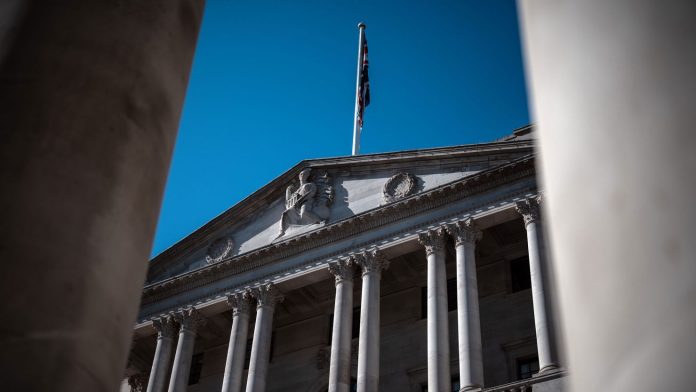The Bank of England (BoE) will cut its base interest rate by 25 basis points (bp) to 4% per annum following its August meeting, analysts predict.
The results of the British central bank’s meeting will be announced on August 7. The BoE cut its rate by 25 bps twice in 2025 and twice in 2024.
Experts do not expect the regulator to make clear long-term forecasts following the August meeting, noting the continuing uncertainty surrounding fiscal policy in the UK and differences in the positions of members of the Monetary Policy Committee (MPC).
The “doves” in the MPC, including Alan Taylor and Swati Dhingra, may argue for a sharper rate cut, given growing concerns about the deterioration in the UK labour market.
At the same time, the more hawkish group, which includes BoE Chief Economist Huw Pill, is likely to focus on rising inflation in the UK.
Consumer price growth in the country accelerated to 3.6% year-on-year in June from 3.4% in May. June inflation was the highest since January 2024, and experts expect it to rise even further before declining.
The surge in inflation in Britain is mainly due to temporary factors. However, the BoE fears that households have become more sensitive to accelerating inflation, especially in the case of rising prices for essential goods, including food. Fears that high inflation is becoming the new normal could trigger faster wage growth.
“Supporters of soft monetary policy will focus on the risks to employment, while hawks will focus on the problem of persistent inflation. Both sides are right in their own way,” Robert Wood, chief UK economist at consulting firm Pantheon Macroeconomics, said.
An additional source of uncertainty for the BoE is UK fiscal policy, given the growing likelihood that Chancellor Rachel Reeves will be forced to announce further tax increases this autumn to meet budget targets.
“Fiscal policy is tightening and further tax increases are expected,” Michael Saunders, an advisor at Oxford Economics who was a member of the MPC from 2016 to 2022, said.
“Trade uncertainty remains high, and this is limiting investment and hiring by companies,” the expert also added.
Judging by the futures quotes for the BoE’s interest rate, the market expects it to fall to 3.5% by summer 2026.
Analysts believe that the British central bank’s new economic forecasts are unlikely to differ much from those announced in May. On Thursday, they expect the regulator to signal that it is preparing to slow the pace of bond purchases.
